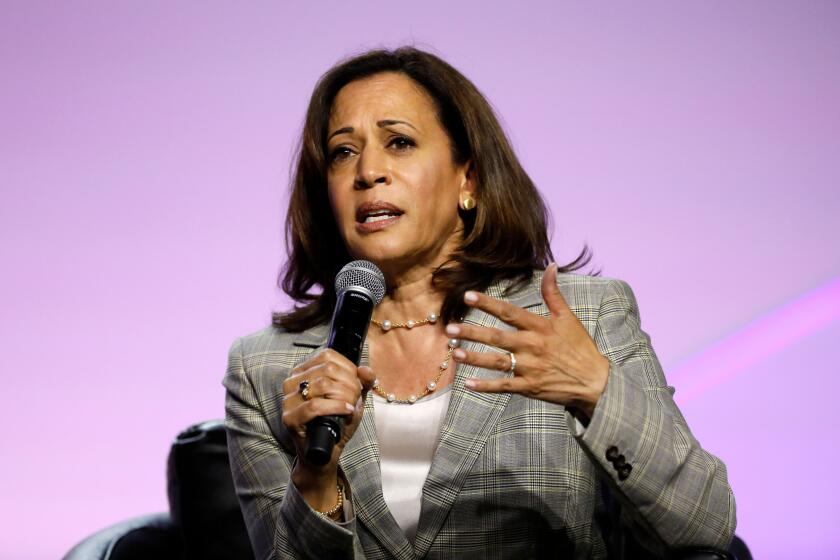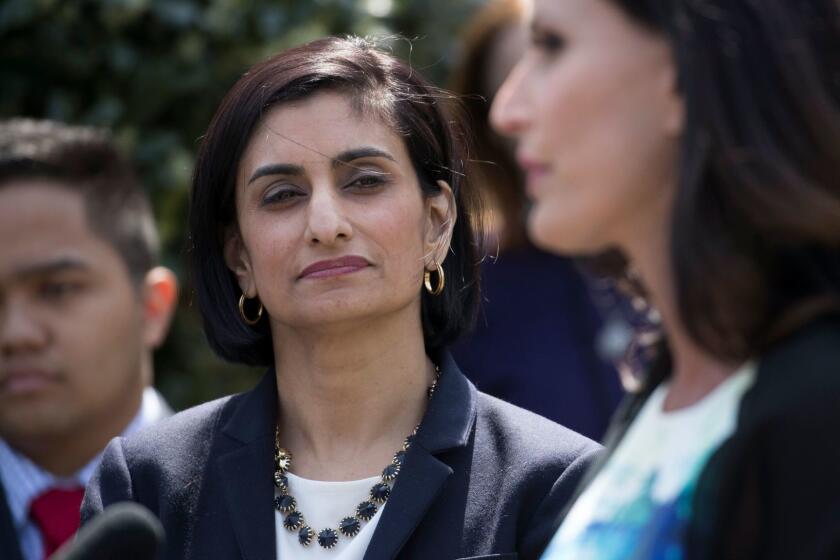Column: Vested interests are already mounting dishonest attacks on ‘Medicare for all’
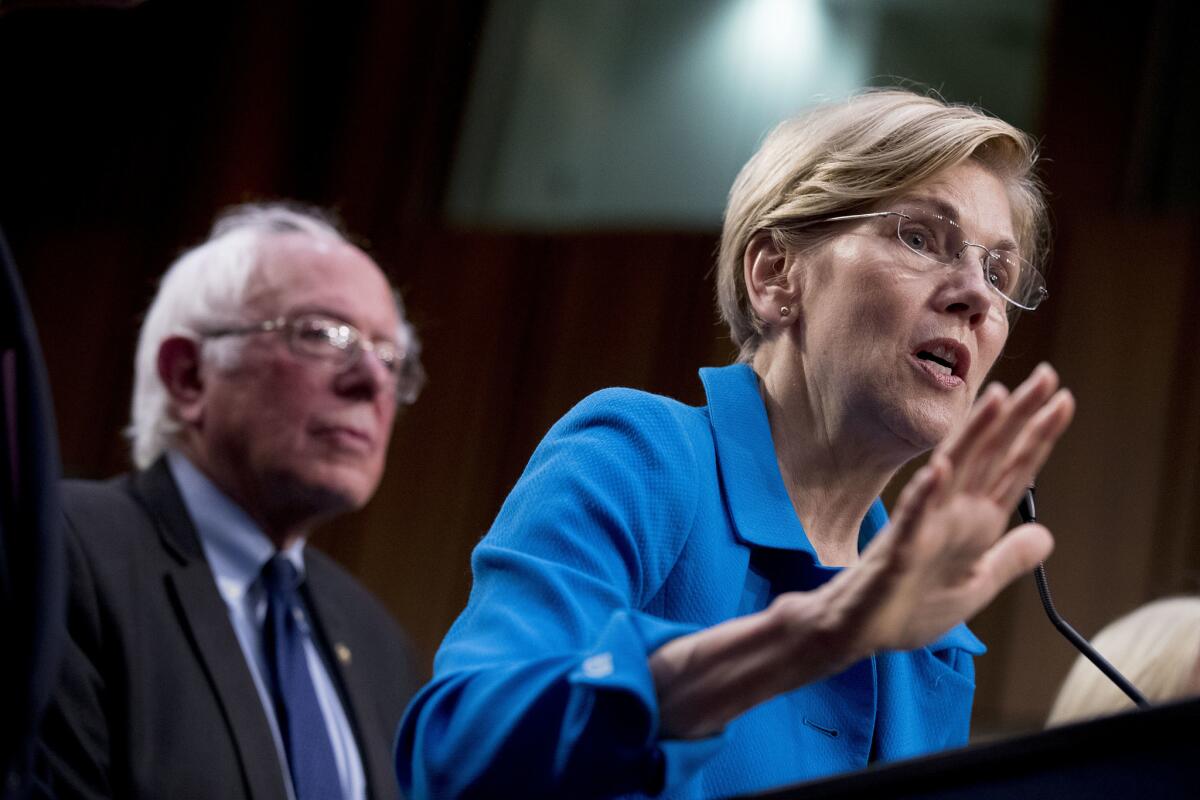
- Share via
For political junkies, the spectacle of members of a single party punching out each other is irresistible, especially when the topic is something like healthcare and its infinite variables. That may be why the Democratic Party debates got as much of an audience as they did.
But what got lost in the exchanges over what version of universal healthcare any candidate favored is that the policy’s real enemies have spent months building their war chests and testing their attack themes. Their chief target is “Medicare for all,” because that’s the chief threat to profits of health insurers, drug companies, hospitals and the medical establishment.
Those special interests already have come together as an outfit calling itself the Partnership for America’s Health Care Future, and if you believe this “partnership” has Americans’ interests at heart as opposed to their own, I have a snake oil cure to sell you.
It’s not really a huge contribution to voters for debate moderators to find elements of the candidate’s plans they can nail them on.
— Drew Altman, Kaiser Family Foundation
The Partnership has made common cause, at least ideologically, with another front group for vested interests. That’s One Nation America, which is an offspring of Karl Rove’s Crossroads GPS dark money spending organization. (The two entities have shared a Virginia address and leadership.)
During Tuesday’s Democratic debate, Sen. Bernie Sanders (I-Vt.) warned that “the healthcare industry will be advertising tonight on this program” in opposition to his Medicare for all proposal. Such ads may not have aired during the debate itself, but they certainly did during the run-up to the broadcast, and on other television broadcasts during the debate.
Kamala Harris’ Medicare for all plan would fulfill the promise of universal health coverage.
The commercials produced by the Partnership and One Nation share certain features in their attacks on Medicare for all. They employ misleading or debunked assertions and figures. They exploit public fears about healthcare reform without proposing anything useful themselves. And they’re very glossy. In brief, they use the playbook written for the infamous “Harry and Louise” TV commercials deployed against Clinton administration proposals for reform in the 1990s.
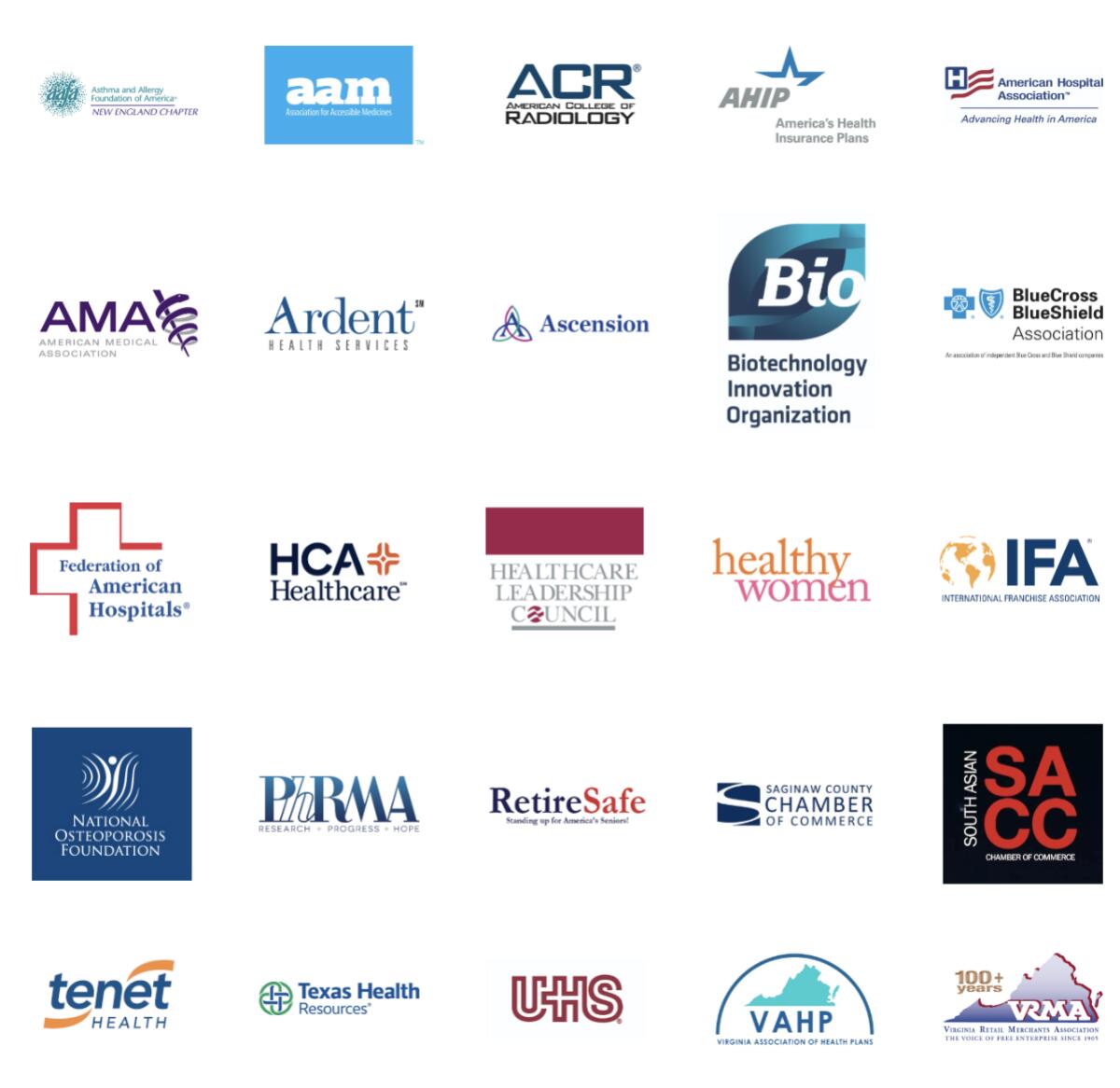
This predictable strategy takes advantage of reformers’ inclination to hash out every detail of their proposals in public and fight over every disagreement among them, no matter how trivial. That process only provides grist for vested interests, which can be depended on to cherry-pick details that are hardest for laypersons to understand and paint them as threats to their well-being.
Drew Altman, president of the Kaiser Family Foundation, sounded the alarm about this methodology in a Washington Post op-ed Thursday, in which he warned Democrats against indulging in “plan-itis.”
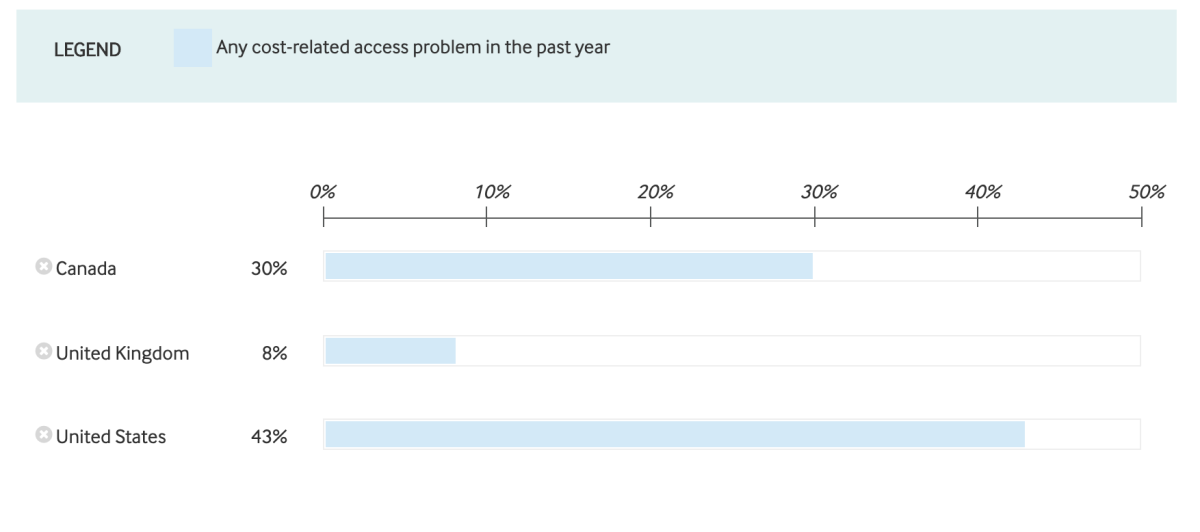
“We’re way too focused on the details of candidates’ policy plans, and it’s not serving the voters’ needs well,” Altman wrote. “It’s not really a huge contribution to voters for debate moderators to find elements of the candidate’s plans they can nail them on.” He noted that “no plan proposed today will become law in any recognizable form” because all will be subject to compromise.
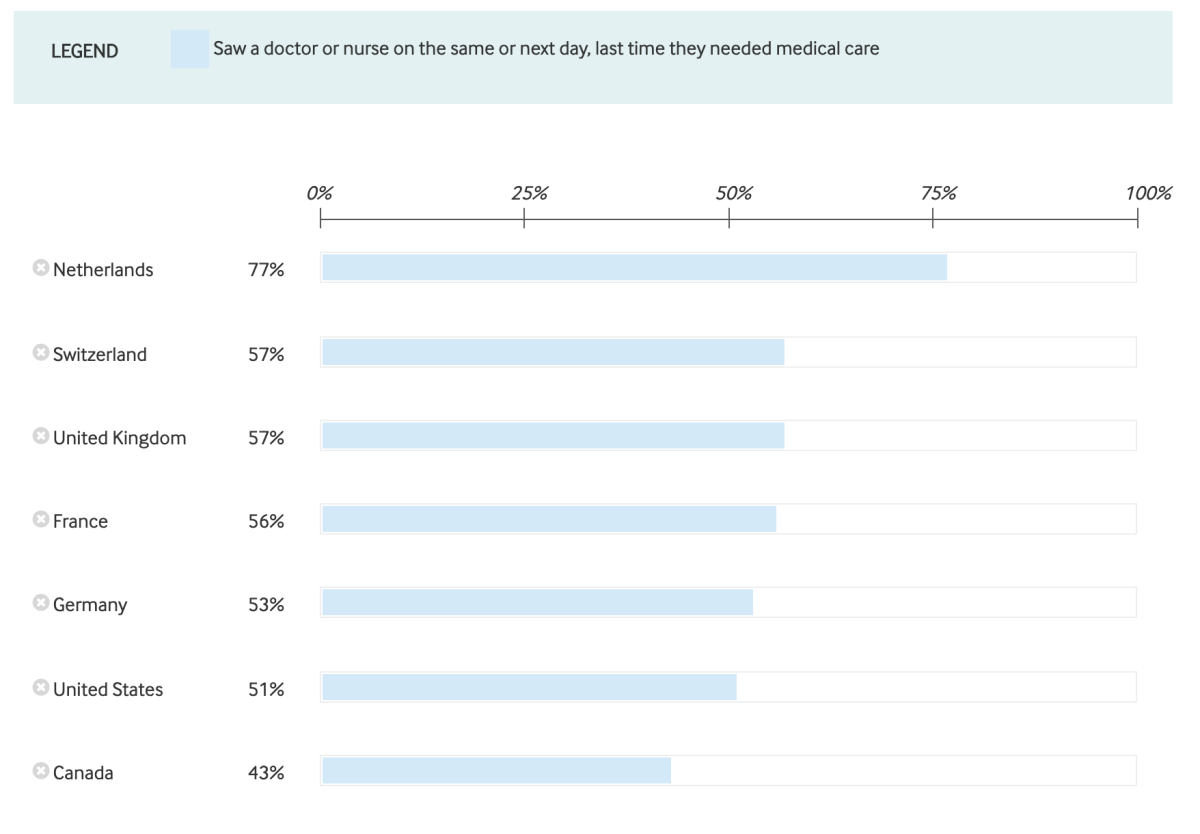
That’s why the best idea the Democrats have is to invoke Medicare in their proposals. Medicare is America’s most successful and popular public health program. It’s a convenient shorthand for universal healthcare and single-payer healthcare, terms which don’t come as slippily off the tongue and don’t pack the emotional power of Medicare for all.
Americans see Medicare as a promise fulfilled — one of the rare fulfilled promises in our political history. What matters right now is the promise of universal coverage, not the details of how we get there.
States that failed to expand Medicaid under the ACA suffered 16,000 unnecessary deaths
The most dangerous political enemy of healthcare reform isn’t disagreement among the Democrats, but the Republican establishment. Reformers should never let Americans forget during the next 15 months that the GOP is moving heaven and earth to destroy coverage for millions of Americans. The Trump administration is calling on a federal appeals court to declare the Affordable Care Act unconstitutional. Republicans in statehouses across the country continue to resist expanding Medicaid for their constituents, despite clear evidence that expansion saves lives.
The danger, however, is that conservatives and the healthcare lobby will take the lead in defining Medicare for all in a way that makes it seem sinister. That’s the goal that’s visible in the attack ads already appearing on your TV screens and your web browsers.

One Nation America, a Karl Rove creation, uses debunked Canadian statistics to attack Medicare for all.
Let’s start with an ad put up by One Nation America, the Rove group. The ad features a series of unhappy-looking ordinary people holding up placards naming common medical treatments and the ostensible delays in obtaining them.
“How long will you wait for care?” a mournful voice-over intones. “In other countries with socialized healthcare, patients wait weeks, even months, for treatment.”
A legend flashed briefly on the screen gives the game away; it cites the Fraser Institute for its figures. What you may not know is that the Fraser Institute is a right-wing pressure group that has been fighting against Canada’s single-payer system for years. The figures on screen are not about “countries with socialized healthcare,” but Canada alone, and they’ve been widely criticized as exaggerated.
This argument is quintessential cherry-picking. It’s true that Canadians wait longer than Americans for some treatments, but it’s also true that residents of the Netherlands, Switzerland, Britain, France and Germany have shorter waits than Americans.
More to the point, far fewer residents of those other countries have had to forego treatment because of cost. According to the Commonwealth Fund, 30% of Canadians have reported “cost-related access problems.” In Britain, which has a full-blown government single-payer program, the figure is 8%. In the U.S., it’s 43%.
And no one should have to be reminded that prescription costs are so out of control in the U.S. that caravans of patients travel over the border to obtain drugs such as insulin in Canada, for massive discounts.
The Partnership’s ad campaign hauls out the familiar shibboleths against healthcare reform. Its emblematic commercial features actors portraying a suburban mom, a construction worker and young professionals bemoaning the prospect of being confined in a “one-size-fits-all” government health plan that would only bring “higher taxes, higher premiums and lower quality care.”

The Partnership for America’s Health Care Future is running this ad to attack Medicare for all.
Yet Sanders’ Medicare for all would eliminate premiums and provide services such as dental and vision care that are now unattainable for millions of Americans even under the Affordable Care Act. His proposal would levy new taxes on the wealthy and the middle class, in exchange for eliminating premiums, deductibles and co-pays. The Medicare for all plan proposed by Sen. Kamala Harris (D-Calif.) would tax principally the wealthy.
“Politicians and bureaucrats in control of our healthcare?” an actor in the ad asks skeptically. One wonders who the average American thinks is in control of our healthcare now. It’s politicians and bureaucrats — conservative Republicans who want to overturn the Affordable Care Act and replace it with a social Darwinism that would leave millions at risk, and bureaucrats at health insurance companies and price-setters at pharmaceutical companies whose aim is to collect as much in profits as they can — from their ordinary American customers.
The sponsors of the Partnership campaign include America’s Health Insurance Plans (the insurance lobby), the American Hospital Assn. (the hospital lobby), the International Franchise Assn. (the fast-food industry lobby) and the Pharmaceutical Research and Manufacturers of America (the drugmakers’ lobby).
Should you really believe, as their commercials unspool on your television set, that they really care about you? Me neither.
More to Read
Inside the business of entertainment
The Wide Shot brings you news, analysis and insights on everything from streaming wars to production — and what it all means for the future.
You may occasionally receive promotional content from the Los Angeles Times.

